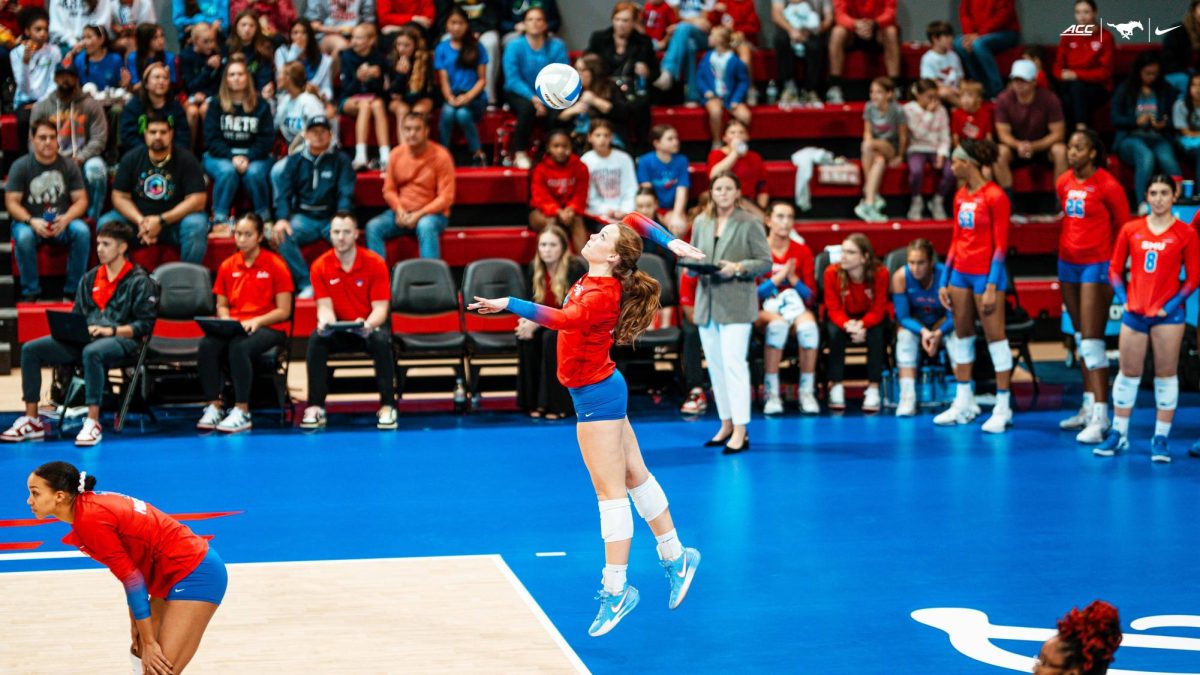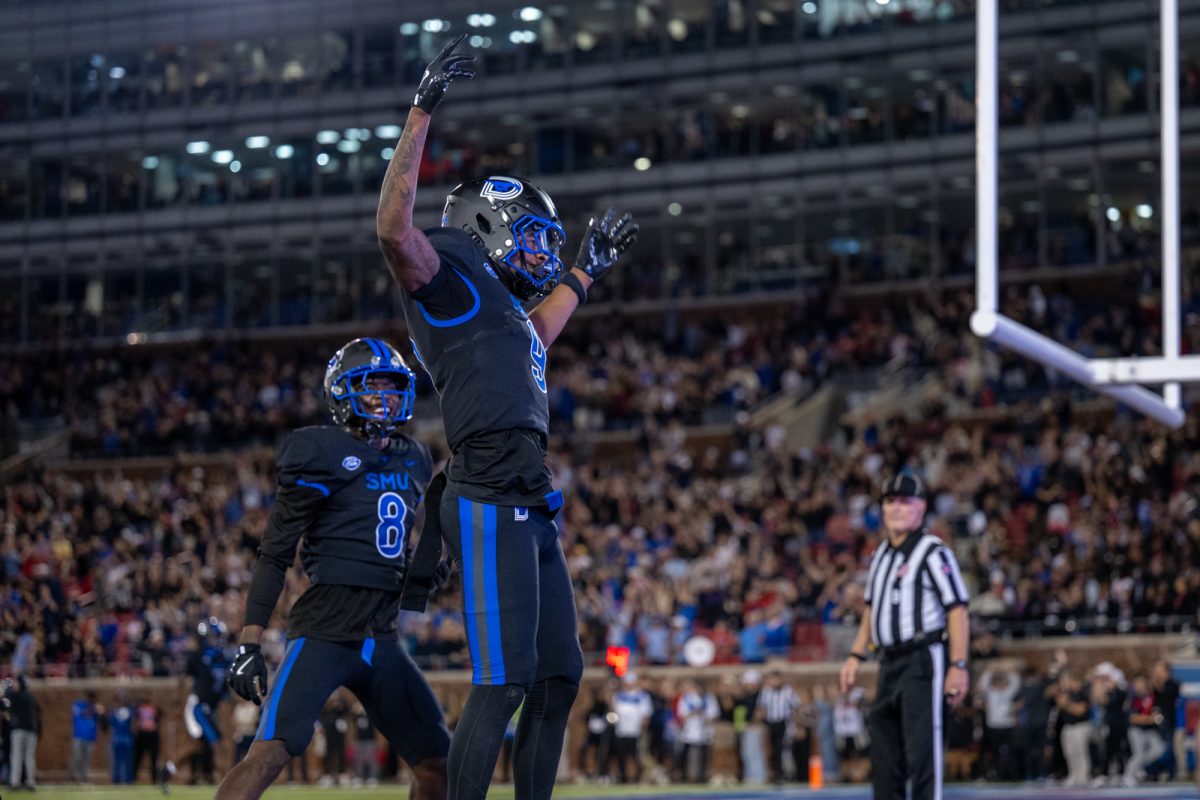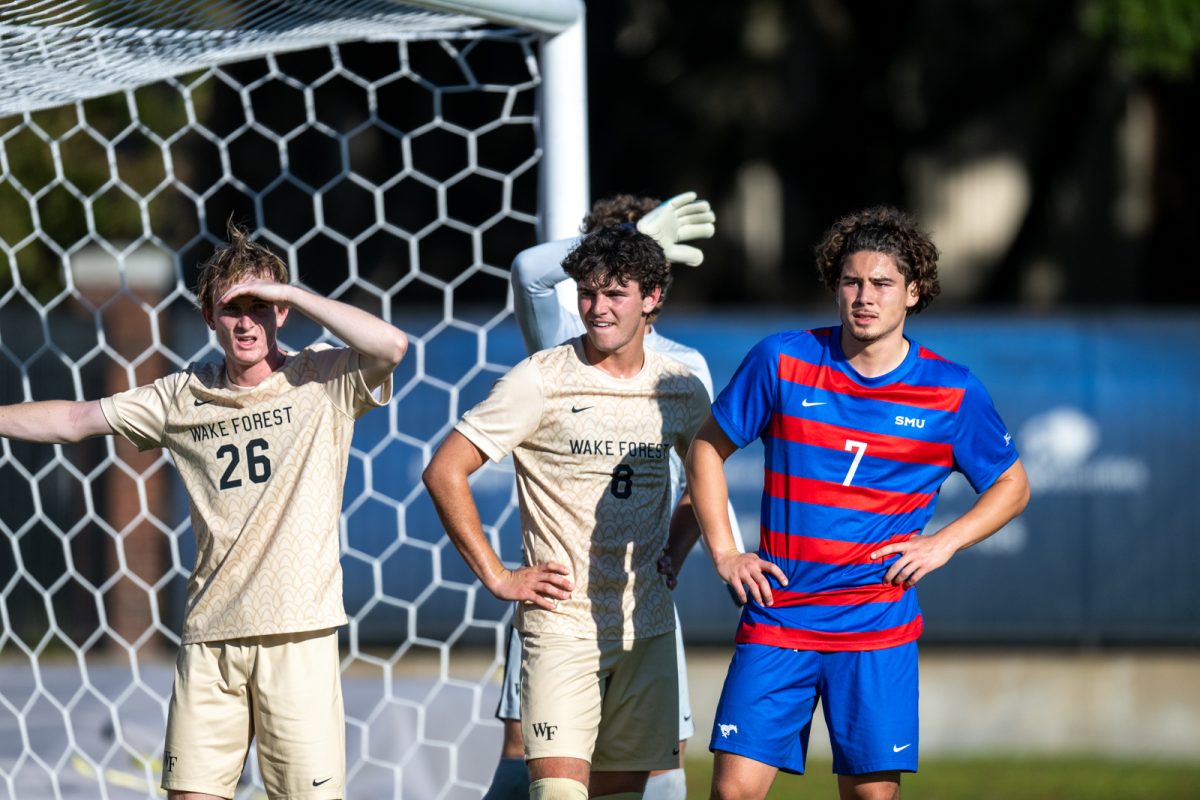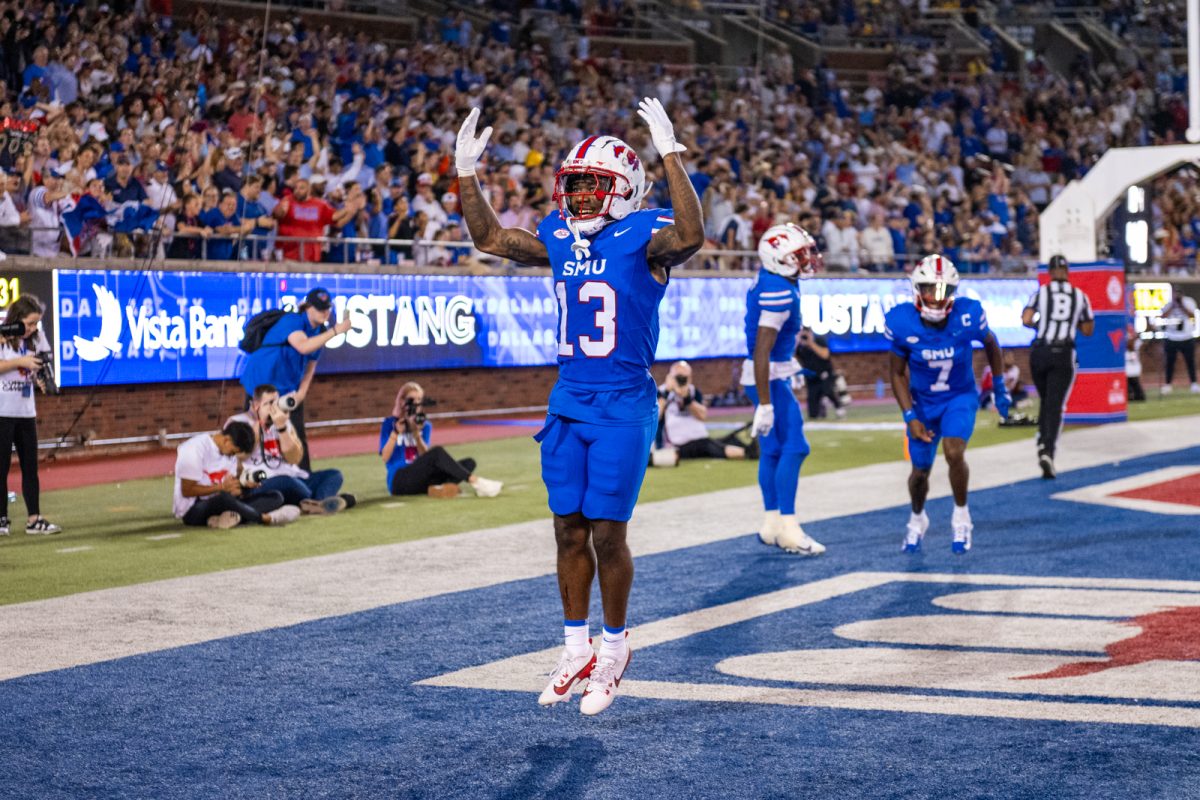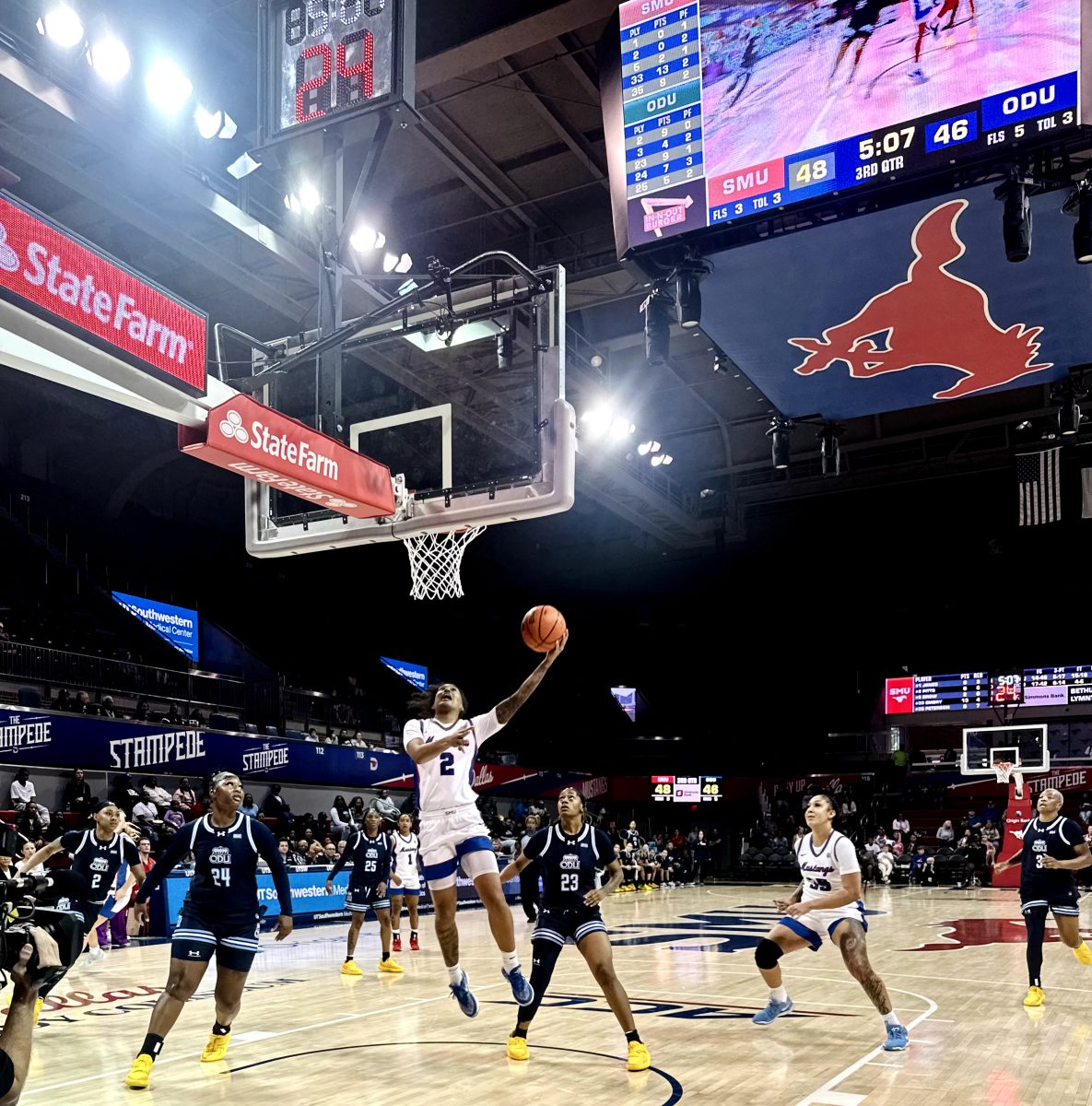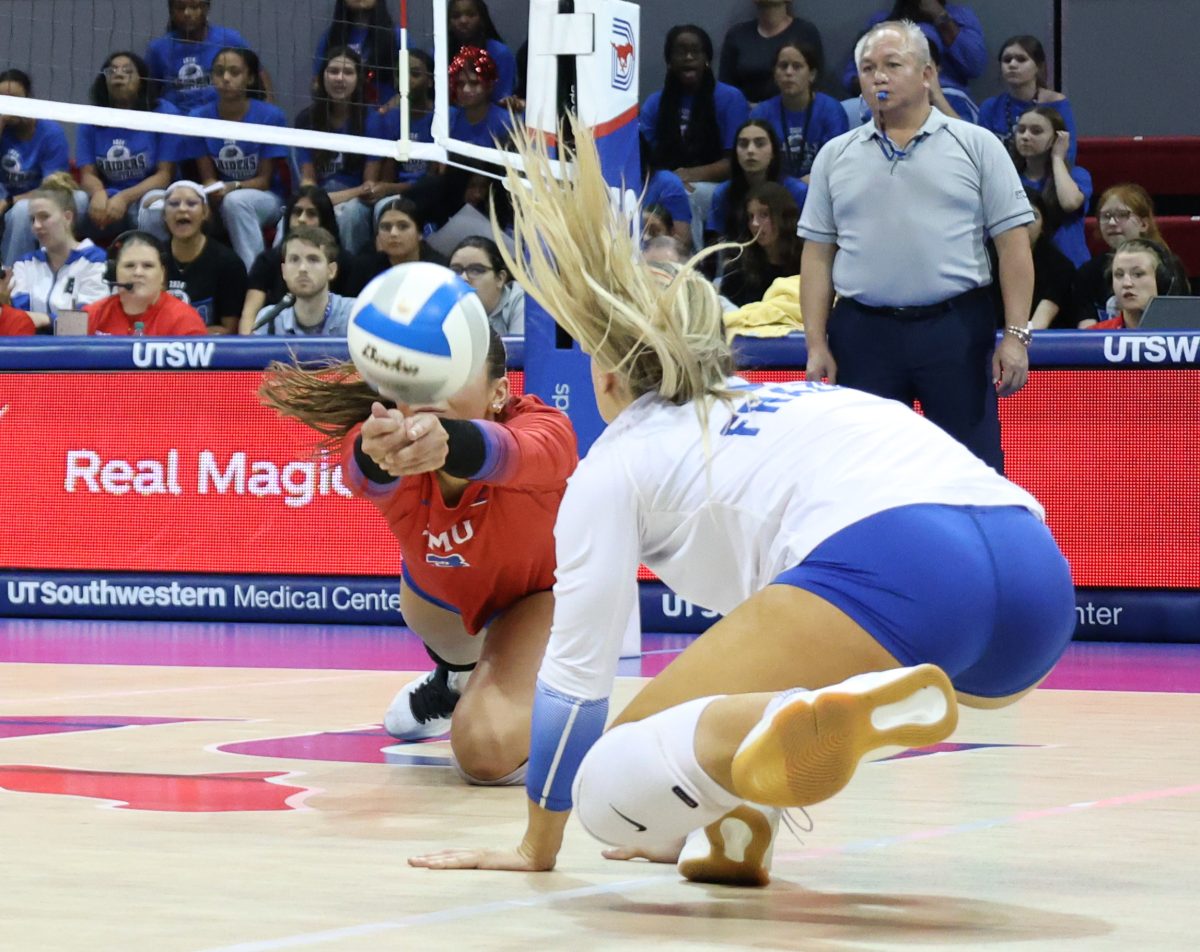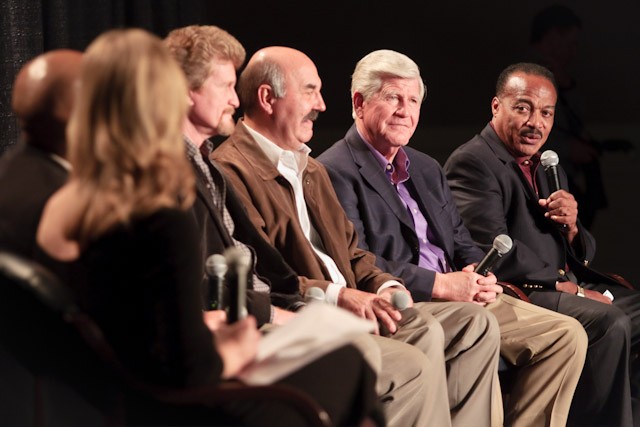
Former SMU football player Jerry LeVias, far right, speaks as part of the Fox Sports Southwest Black History Month Town Hall Forum with Jerry LeVias, Monday evening inside the Mack Ballroom. (TY WILLIAMS/The Daily Campus)
In the early 1960s, every Texas high school football player in the state dreamed of earning a full scholarship to play football in the old Southwest Conference that consisted of seven of Texas’ premier universities and the University of Arkansas.
So what was so different about this kid from Beaumont who grew up idolizing NFL superstars like Jim Brown and Gale Sayers?
He had all the intangibles. He could pass, catch, run with his blazing speed and was a good student in the classroom. During his senior year at Herbert High School, he scored six touchdowns in one game.
But this superstar Texas athlete, who had over a hundred scholarship offers, had one major obstacle standing in the way of his dream.
It was not his lack of size. He was officially listed as 5-inch-9-inches, 177 pounds but actually measured closer to 5-feet-10-inches and weighed a mere 140 pounds.
For what he lacked in size, he made up in heart and courage. It was also not character issues, a problem that we find too often in athletes of today. No, it was the color of his skin.
The Southwest Conference had seen a grand total of zero athletic scholarships granted to black athletes until to the spring of 1965.
SMU head coach Hayden Fry, who was promised he could recruit black athletes when he was hired, signed Jerry LeVias, the aforementioned athlete, and so began a tremendous social change.
Before coming to SMU, LeVias was diagnosed with polio and was told he was too small to play junior high football in Beaumont by his coaches and his father.
However, LeVias had different plans. The first time he touched the ball as freshman he scored a 65-yard touchdown.
Once senior year rolled around, LeVias was one of the most sought after recruits in the nation. Surprisingly no offers came from traditional historically black college football powers. They deemed him to be too small, so LeVias began to lean toward UCLA.
This was before Fry made a personal visit to the LeVias home, where he captivated LeVias by talking about academics rather than football.
“I still can’t say why I chose SMU because I had never heard of SMU but Coach Fry really talked to me as a man not as a football player,” LeVias said. “God works in mysterious ways.”
So LeVias made the five hour journey to Dallas, where he immediately faced racial prejudice from his peers in the classroom. To make matters worse, SMU did not allow freshmen eligibility which meant he would have until the 1966 season opener to suit up for the Mustangs.
When that date finally arrived, LeVias did not fail to impress as he scored two touchdowns and led SMU to victory. Throughout the rest of the season, LeVias helped SMU beat Texas and Texas A&M.
With the Southwest Conference title on the line, SMU traveled to Fort Worth to take on cross-town rival Texas Christian University. During the week, it was reported that LeVias would be assassinated by snipers in the TCU stands. LeVias was last off the bus as he was escorted onto the field by guards.
LeVias decided to play, and a good decision it was as he scored a 68-yard touchdown in the first quarter. SMU defeated TCU 21-0, allowing the Mustangs to make their first Cotton Bowl appearance in two decades.
LeVias persevered through a season filled with eye gouging, spitting and death threats to earn All Southwest Conference honors. He went on to play two more seasons for SMU and was bestowed All America and Academic All America Honors as a senior.
After breaking the color barrier in the Southwest Conference, LeVias was drafted in the second round by the Houston Oilers in 1969 and wrapped up his NFL career with the San Diego Chargers.
“I never thought about blazing the trail but I’m glad I contributed the way I did,” LeVias said.
LeVias has since been inducted into the College Football Hall of Fame and Texas Sports Hall of Fame. In 2009, SMU honored him by giving out the number 23 to an athlete that most display the attributes and qualities LeVias brought to SMU.
That distinguished number is worn today by senior Chris Banjo, who is the defensive captain for the Mustangs.
“Just being a part of a great individual, people referring to me and him in the same sentence sends chills down my back,” Banjo said. “Its a great honor.”
A special presentation of FOX Sports Southwest’s award-winning documentary “Jerry LeVias: A Marked Man” was shown on campus at the Mack Ballroom on the SMU campus Monday night as a part of Black History Month. An edited special of the documentary will premier on Fox Sports Southwest at 10 p.m. on March 14.
“We feel that LeVias plays a major role not only for SMU but for all of college football,” SMU Athletic Director Steve Orsini said.









